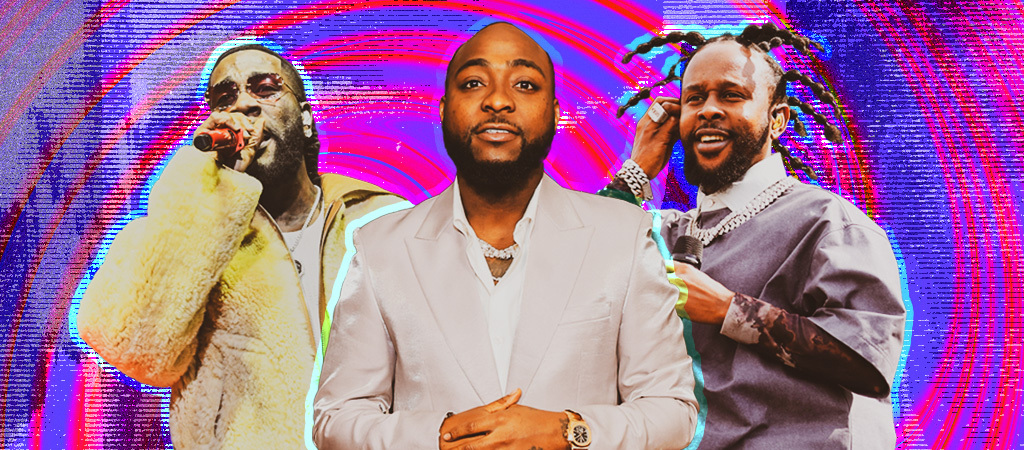Let’s set the scene. You’re out with friends, or maybe by yourself, at a local nightclub or day party, and the DJ on set gives a shoutout to the “Carribeans” in the crowd. They say something like, “One time for my Carribeans” or “Where my Carribeans at?” and those in the audience who identify as such make some noise with the expectation that a song from their region will be played next. Instead, an afrobeats record from the likes of Wizkid, Davido, or Burna Boy blares from the speakers. Carribeans and Africans in the audience are left equally confused by the miscategorization and the DJ does a quick two- or three-song rotation before getting back to their regularly scheduled programming.
As ludicrous as it sounds, this scenario happens more often than you’d think. Look no further than comments in this Lipstick Alley forum from 2022 for proof. While regions heavily populated with Africans or Carribeans like southern New England, New York City, Philadelphia, or Houston probably haven’t had this experience to the extent of other areas, it is an issue. It’s just one example of the miscategorization of these genres that we’ve seen happen time and time again.
By the 2010s, Afrobeats and dancehall were undeniably popular in the global mainstream. Viral dances like those attached to Fuse ODG’s “Azonto” and Iyana’s “Kukere,” as well as success from Davido, Burna Boy, Wizkid, P-Sqaure, D’banj, and others played a big role in afrobeats’ rising popularity. In contrast, the success of Sean Paul, Popcaan, Vybz Kartel, Bounty Killer, Beenie Man, and others helped boost the appeal of dancehall. Though dancehall stands alone as its own unique sound, afrobeats is more of a culmination of various genres that include any mixture of house, hip-hop, dancehall, highlife, R&B, afrobeat (yes, without the s), and more.
Afrobeat is different from afrobeats as it pulls from traditional Nigerian music with additional influences from funk, jazz, and soul, and sees its origins go back to the 1960s, while the origin of dancehall is between the 1960s and 1970s. With afrobeats and afrobeat often getting confused and afrobeats containing numerous influences — including dancehall — it’s not all that surprising that the genres are mixed up, leading to DJs shouting out “Carribeans” and playing afrobeats. However, a history mix-up would be a generous explanation for all of this.
With afrobeats and dancehall making their presence felt in the mainstream world by the mid-2010s, artists in the respective genres continued a tradition of collaboration dating back to their origins. Some of the records we’ve received over the years include Kranium & Wizkid’s “Can’t Believe It,” Popcaan and Davido’s “Risky” and “Dun Rich,” Burna Boy’s “Toni-Ann Singh” with Popcaan, Byron Messia’s “Talibans II” with Burna Boy, Teejay’s “Drift (Remix)” with Davido, Vybz Kartel & Burna Boy’s “Personally (Remix),” and Wizkid’s “Slip N Slide” with Shenseea and Skillibeng. In these cases, the blend between afrobeats and dancehall can be effortless with each artist performing just as well in the other’s genre as they do their own. For those without knowledge of the artists and sounds within afrobeats and dancehall, this is where the distinction between the genres gets lost, and suddenly, you’re shouting out the Carribeans in the crowd, only to play a set full of afrobeats staples.
While some ignorance is understandable, fans’ and DJs’ reluctance to correct said ignorance is not. Both afrobeats and dancehall are becoming more and more globally popular and respected by the month. For example, a fall 2023 report from Spotify noted that afrobeats tallied more than 15 billion streams on the platform. In just the last few years, both genres have provided records that served as anthems for the year’s hottest months, including Burna Boy’s “Last Last,” Byron Messia’s “Talibans,” and Wizkid’s “Essence.”
These artists are Grammy nominees and winners. Artists in both genres collaborate with some of the biggest names in the industry. The genres’ successes aren’t a fluke, but the result of years of work from their pioneers and contemporary hitmakers to push the beautiful sounds of their culture to the masses. Afrobeats and dancehall deserve the respect and recognition to stand and be known on their own terms.
Some artists covered here are Warner Music artists. .







